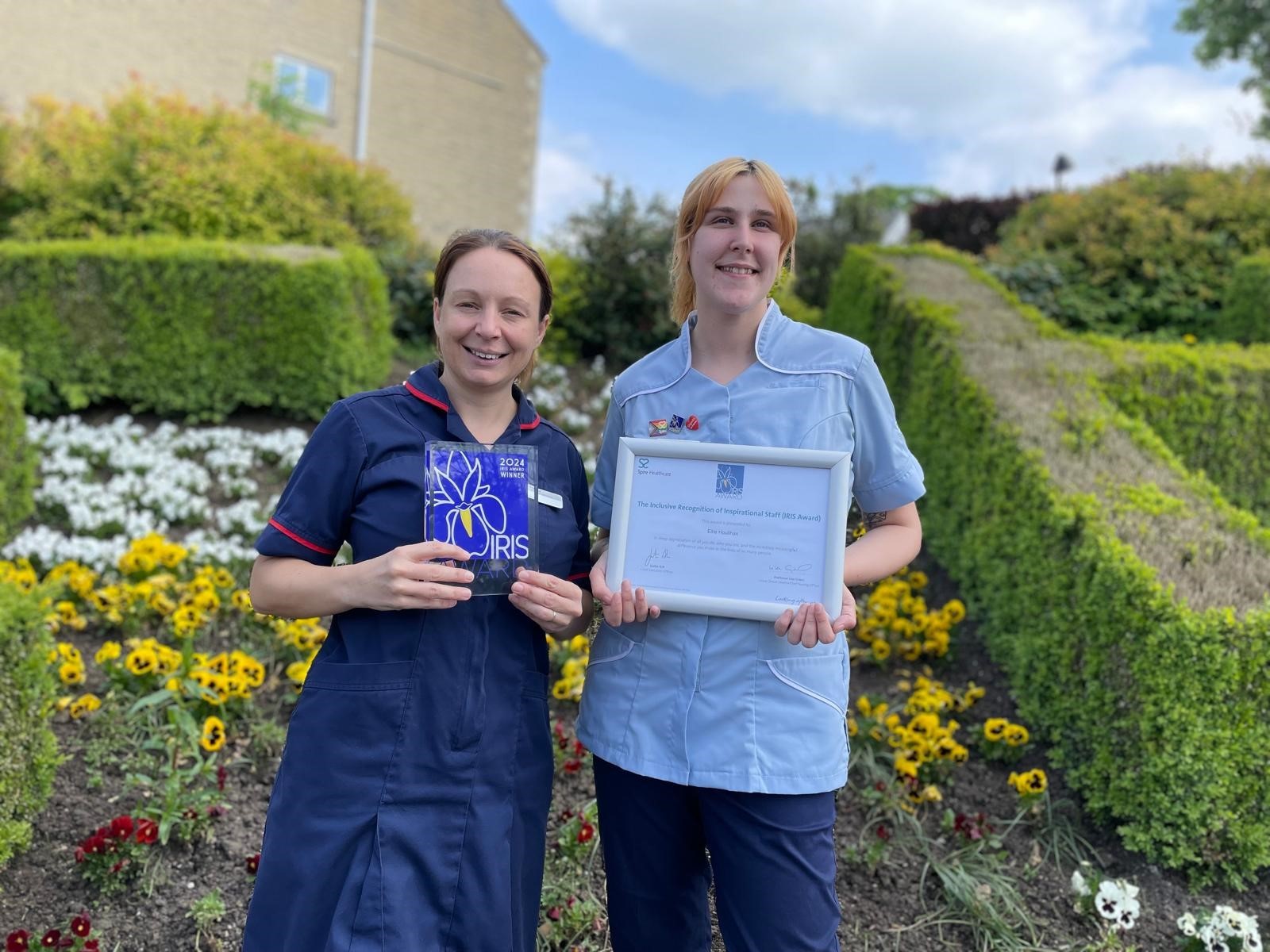Inspirational clinicians are recognised for outstanding patient care at Spire Elland Hospital
28 May 2024
Local clinicians from Spire Elland Hospital, Elaine Rowland and Ellie Houlihan are two of the first ever winners of the prestigious IRIS awards at Spire Healthcare.


